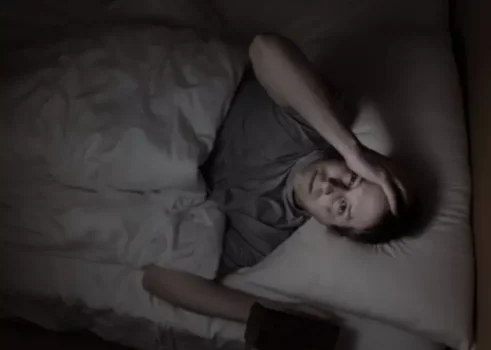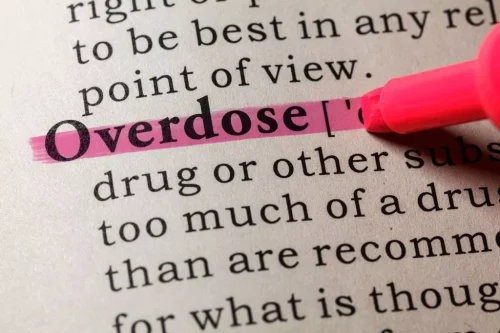
Steering clear of alcohol, however, gives the liver a chance to regenerate. “Cutting out and abstaining from alcohol can recover a substantial portion of liver function,” Wirtz says. “When we stop drinking, we can begin to repair some of the long-term effects of alcohol use.” Symptoms can range from headache, elevated blood pressure, heart palpitations, and nausea and vomiting to tremors, hallucination and in severe cases death. Depending on whether you’re a light or heavy drinker, your strategy around cutting back will be different.
- At this point, your risk of developing all types of disease will be reduced and your bone density will start to increase.
- According to the National Survey on Drug Use and Health, 9.2 million U.S. adults had both mental health disorders and a substance use disorder in 2018, yet nearly 60% did not get treatment.
- Alcohol can cause both short-term effects, such as lowered inhibitions, and long-term effects, including a weakened immune system.
- While it’s true that alcohol withdrawal symptoms can be severe, they will not last forever.
- If you’re experiencing severe symptoms of alcohol withdrawal, be sure to talk to a healthcare provider.
- Drinking alcohol can contribute to a variety of cognitive issues, including poor memory, slow reaction time, impaired impulse control, and poor concentration.
Belsomra and Alcohol: 4 Reasons You Should Avoid This Combination
If you’re living with alcohol use disorder (also known as alcoholism), you’ll likely benefit from additional medical interventions. Alcohol withdrawal symptoms can be greatly reduced or even eliminated with proper medical care. There are specific treatments available for anyone who wants to stop drinking—even after long-term, chronic alcohol use.
Foods and Drinks to Avoid If You Have Osteopenia
Even cutting back your drinking by a third can lower the number of injuries and sick days. According to the Dietary Guidelines for Americans, alcohol should be consumed in moderation — up to one drink per day for women and up to two drinks per day for men. In addition to the health benefits, when you stop drinking for any amount of time it automatically saves you money. Research shows that drinking large amounts of alcohol before bedtime leads to decreased sleep onset and disrupted, poor quality sleep later in the night. “I would suggest cutting back on several things rather than completely eliminating to avoid feeling deprived, which can lead to rebound eating/drinking and weight regain,” she said.

You May Feel Irritable, Anxious, or Moody
If you’re having difficulty sticking to your goal or just want some extra guidance, consider reaching out for professional support. You can also use the National Institute on Alcohol Abuse and Alcoholism’s Alcohol Treatment Navigator to search for a substance use treatment center near you. Here are some science-backed perks of taking a break from alcohol.
But a full detox is needed for the most benefit, and how much time that takes depends on a variety of personal factors. If a physician determines that you’re at risk for severe withdrawal, it’s important that you get the appropriate care so that you can be monitored and evaluated during your withdrawal. Treatment may take place at a hospital or at an inpatient detox center. There are also some medication options prescribed by doctors that may help with symptoms. Now that we’ve covered the first four stages of withdrawal, let’s take a look at the weeks and months that follow.
Alcohol and Bupropion: 4 Things to Know About This Risky Combination
- Just like a broken bone or infection needs time to heal, so does an overworked liver.
- This article discusses the causes, common symptoms, and different stages of alcohol withdrawal.
- Ceasing alcohol consumption is crucial in preventing the elevated risk of high blood pressure, irregular heartbeats, and stroke that excessive drinking and even a single bout of drinking can pose.
- If alcohol continues to accumulate in your system, it can destroy cells and, eventually, damage your organs.
- Alcohol causes inflammation in the lining of your stomach, causing bloat and other digestive issues.
She also notes that a craving for alcohol is common once people stop. And, emotionally, alcohol can make you not only more anxious, but more irritable, more impulsive and less inhibited — not just after a drink, but compounded over time, says Dr. Mosquera. These effects can also be exacerbated if you have a mental health diagnosis like bipolar disorder, he says. Once you have gone through withdrawal, you’ll also need a plan to remain alcohol-free.

Mild Symptoms
Maybe you don’t think you depend on alcohol exactly, but you still wonder whether you might be drinking too much. One study found that around 70% of participants had sleep problems when they were admitted for alcohol treatment. That number dropped to 50% when the participants went home, and many reported that their sleep what happens when you stop drinking quality got better after treatment. According to Volpicelli, the cognitive changes people can have from drinking—like memory trouble, slowed reaction time, difficulty controlling behavior, and poor concentration—get worse over time. Your urge to drink may be so intense that you can’t think about anything else.

But drinking any amount of alcohol can potentially lead to unwanted health consequences. Brittany Burke Robert, the author of this article, has written about health for Oprah Daily, Well+Good, Livestrong, Reebok and other publications and digital brands for over 15 years. She has extensive experience working alongside clinicians and providers to create physical and mental well-being content that’s useful, informative, and clinically effective. For this article, she conducted interviews with multiple doctors for their expertise and recommendations and read research on alcohol and its effect on the body. Ironically, some of the first things you might notice are similar to what happens to your body when you’re drinking. “Anxiety is the most common thing people notice upon stopping,” says Dr. Sharone Abramowitz, MD, a psychiatrist and president of the California Society of Addiction Medicine.

Leave a Reply